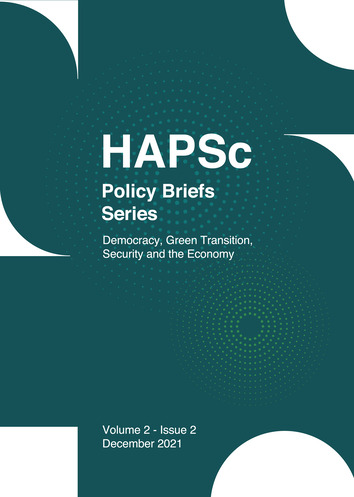European Green Deal: Will the Transition Be Orderly for the Private Sector, or Will There Be Discrepancies?

Abstract
In this paper we will try to understand whether the transition towards a green economy, according to the targets and values of the European Green Deal, will be harmonious for the private sector of the EU, or it will lead to discrepancy and adversity. In order to achieve this, we will examine each sector that is most affected by this transition separately and the extent it will be affected. The sectors that we are going to examine are those of energy, transport, agriculture, industry, building, renovation and tourism. Our aim is neither to predict nor to judge the way this transition will play out, but to understand and inform those who are interested in and affected by this new Deal.
Article Details
- How to Cite
-
Mysirli, T. (2021). European Green Deal: Will the Transition Be Orderly for the Private Sector, or Will There Be Discrepancies?. HAPSc Policy Briefs Series, 2(2), 230–238. https://doi.org/10.12681/hapscpbs.29510
- Section
- Articles

This work is licensed under a Creative Commons Attribution 4.0 International License.
Authors retain copyright and grant the journal right of first publication with the work simultaneously licensed under a Creative Commons Attribution License that allows others to share the work with an acknowledgement of the work's authorship and initial publication in this journal.

